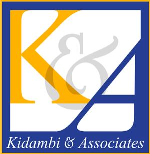“Yes, we did process your friend’s case and yes, his petition was approved. But even though you appear to have the same background, your current circumstances do not warrant a successful petition.” A recent conversation I had with a prospective client ended along these lines.
I was just not comfortable accepting the case even though he had come referred by a friend represented by our Firm and whose EB-1A petition had just been approved. Sometimes, even when two candidates appear to have the same background, it is important to unemotionally look at the facts being presented. The temptation to accept a case is very strong, especially when you’ve tasted success with an earlier petition with a similar background. Sometimes, even two employees working for the same employer in similar positions, may not qualify for the same benefit. In these circumstances, it is better to present an alternative strategy, or have the candidate wait for a more opportune time to file.
I recently saw evidence of a flawed filing that had relied on past success during a consultation (read second opinion following an RFE). The employer was being represented by a “top-notch” law firm with decades of experience in processing National Interest Waivers and EB1 cases. Unfortunately, the firm had used a “cookie cutter” approach to filing this petition and several portions of the Attorney cover letter had language not readily applicable to the candidate. Unfortunately, the first impression created by a sloppy filing is very hard to fix even if amends are made when responding to the RFE.
In contrast, when we begin working on an EB-1A application, we do so with careful deliberation. Oftentimes, the first interview is meant for fact finding and information gathering. Seldom do we decide on representation immediately. Usually, that happens after we’ve had a chance to corroborate the information presented at the intake interview through independent sources. Clients appreciate the candor and willingness to treat each case uniquely.
Then, we lay out a strategy and work very closely with the client from the moment the engagement letter is executed. This begins with providing the client with a very detailed checklist and spreadsheet to list all possible documentary evidence and character/expert witnesses (very similar to the process of gathering evidence prior to a trial); we encourage clients to list as many evidentiary documents and experts as they can muster. Sometimes, even passing references may help reiterate certain aspects of the case. Repetition is never an issue. Clients are given prompts including how, where and when they met a certain expert/peer to allow us to set context and standing.
Next, we engage the client in weekly/bi-weekly meetings to prioritize the gathering of evidence. Experts who are hard to reach or have schedules that do not permit easy access (for e.g., college professors, clinical experts, overseas experts, C-Level executives, etc.) must be dealt with on a priority basis. Whenever and wherever required, we help draft “suggested” letters from these experts, taking special care to let the letter-writers know that the format and contents of the letters are not sacrosanct and they are welcome to revise, alter, or modify the final product in any way, shape, or form. This allows for a candid and yet comprehensive letter writing exercise. The Service gives independent letters more weight than garden variety form letters.
The process of collating the evidence and writing a compelling brief is a labor of love and we take this process very seriously. At least one Associate and a supervising Attorney engage in this process with feedback and contributions from the Beneficiary over a period of four to six weeks. The final product is a work of art and unique to each client. The petition is filed as required by strict USCIS standards and includes everything from a table of contents to numbered pages and exhibit tabs that are referenced in the body of the brief. While nobody can guarantee results, a well-prepared EB1 petition has a more than likely chance of being approved.
As a boutique law firm, we like to focus on one client at a time and thereby ensure the probability of success is very high. If anything, a successful petition requires among other things, meticulous planning and flawless execution. Afterall, we owe this to the Client!
